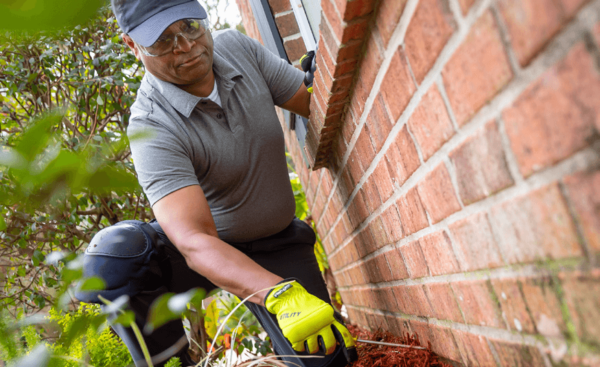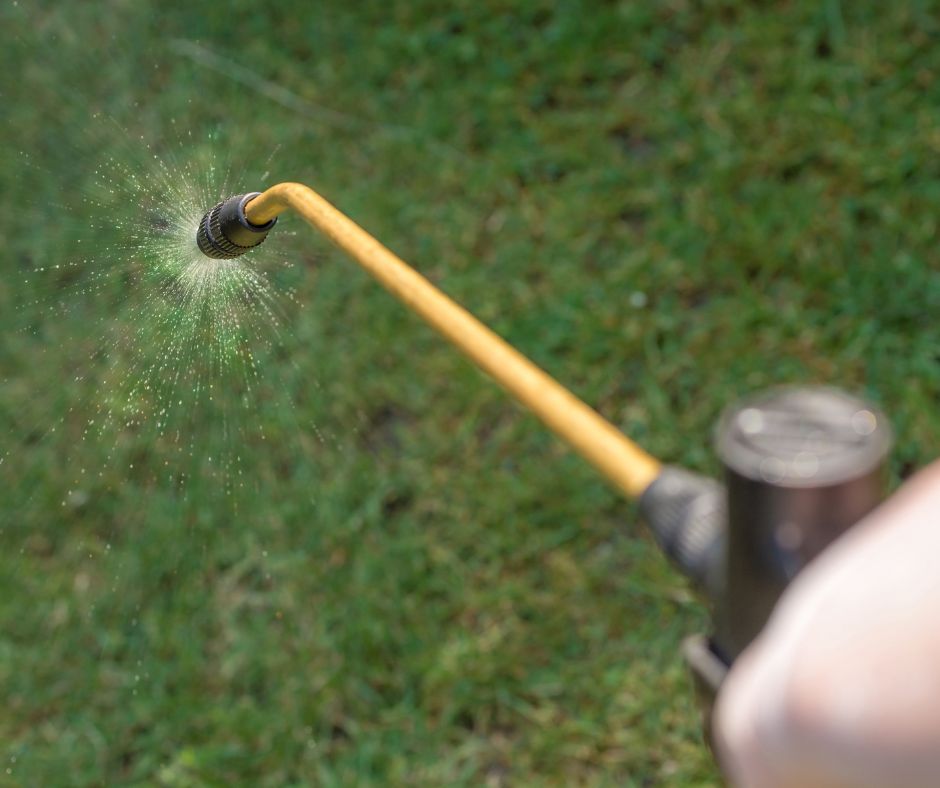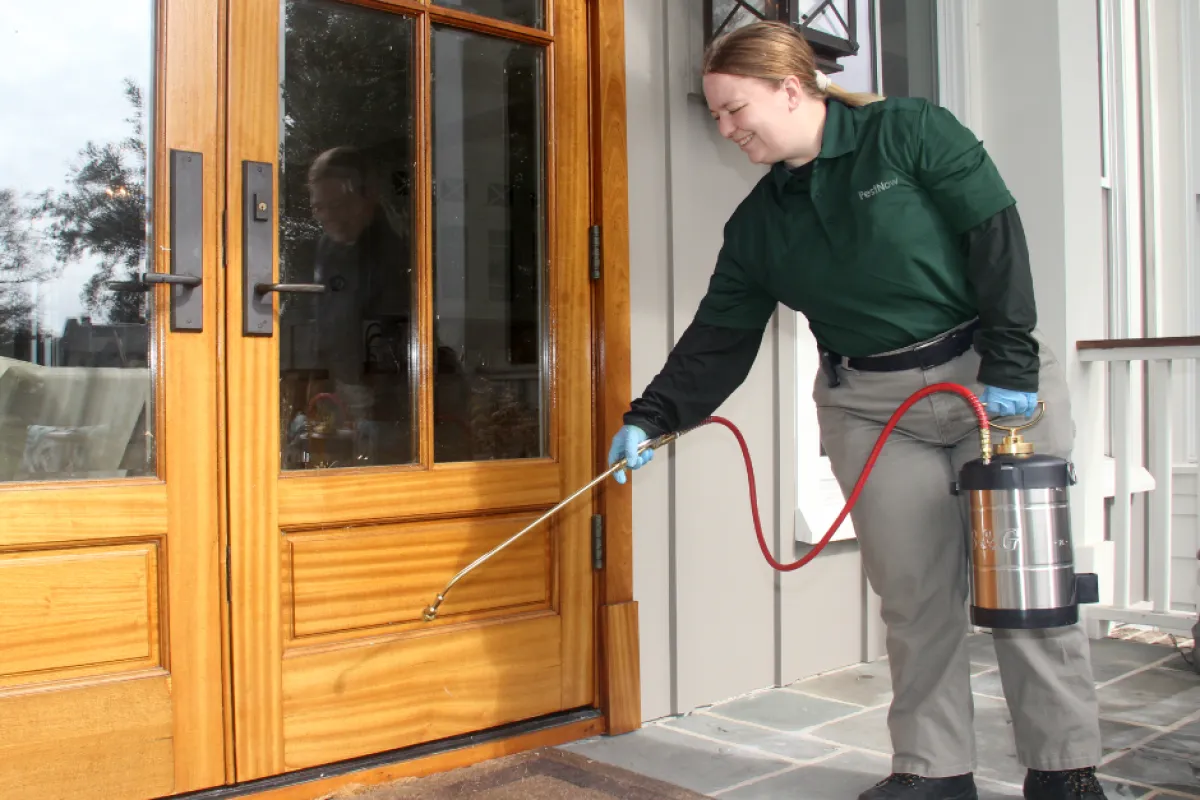Expert Bed Bug Exterminator Port Charlotte for a Peaceful Night’s Sleep Quality
Reveal the Relevance of Parasite Control in Keeping a Healthy And Balanced Atmosphere and Treatment Techniques

The Function of Pests in Ecological Communities
Bugs, commonly checked out entirely as nuisances, play a complex role in ecological communities that is crucial for keeping environmental balance. They contribute considerably to numerous eco-friendly processes, including pollination, vitamins and mineral biking, and bug control. For instance, several insect varieties, such as bees and butterflies, are necessary pollinators for a vast array of plants, which in turn sustains biodiversity and food production.
Furthermore, insects serve as target for many predators, creating a vital web link in food webs. This interdependence makes certain the survival of various types and aids regulate populations within ecological communities (Termite treatment Port Charlotte). Additionally, decomposer bugs, such as particular beetles and fungis, contribute in breaking down raw material, thus enriching soil and promoting nutrient recycling.
Alternatively, while insects can be valuable, their overpopulation or invasion right into non-native environments may disrupt these ecological functions. This complexity underscores the significance of recognizing insect dynamics, as efficient parasite management strategies need to take into consideration both their ecological duties and potential influence on human tasks. Stabilizing pest existence while reducing harm is important for preserving the integrity of ecosystems and ensuring farming efficiency.
Health And Wellness Risks Related To Parasites
The existence of insects in various settings prolongs beyond their eco-friendly functions, as they also pose substantial health and wellness risks to animals and human beings. Several bugs, including insects, rats, and parasites, are service providers of illness that can have serious wellness ramifications. Rodents are recognized to transmit hantavirus and leptospirosis, both of which can lead to extreme respiratory and kidney issues, specifically.
Insects such as insects and ticks are infamous for spreading out vector-borne illness like jungle fever, dengue fever, and Lyme disease. These illnesses can lead to high morbidity and death rates, particularly in vulnerable populations. Furthermore, parasites like cockroaches and insects can intensify allergic reactions and asthma, contributing to breathing troubles in individuals, particularly those with pre-existing problems.
In addition, the presence of bugs can bring about psychological tension and discomfort, affecting total well-being. Contamination of food and surfaces by insect droppings and stays can bring about foodborne illnesses, highlighting the significance of preserving hygienic problems. Recognizing the wellness risks associated with insects is important in acknowledging the necessity of reliable insect administration techniques to protect human and animal health.

Benefits of Efficient Bug Control
Effective insect control is necessary for keeping a safe and healthy atmosphere, as it continually mitigates the numerous risks connected with bug infestations. One of the primary benefits of efficient bug monitoring is the decrease of health hazards. Insects such as roaches, insects, and rodents are vectors for illness that can impact both people and family pets. By managing these populations, the possibility of Resources disease transmission is dramatically reduced.
In addition, reliable insect control safeguards home and structures from damages. Numerous pests, like termites and woodworker ants, can trigger comprehensive architectural damages that might require expensive repair work. By proactively taking care of these house owners, infestations and services can protect their financial investments.
Another considerable benefit is the enhancement of total quality of life. A pest-free atmosphere adds to mental health and minimizes stress and anxiety connected with invasions. Furthermore, efficient parasite control promotes a much safer setting for pets and children, making sure that homes continue to be havens complimentary from disease-causing microorganisms and unsafe chemicals.
Common Pest Control Techniques

In the realm of pest monitoring, different techniques are employed to battle invasions efficiently. These techniques can be extensively categorized right into three main strategies: cultural, mechanical, and chemical controls.
Cultural control entails modifying techniques to minimize insect reproduction, survival, and facility. This may consist of more crop turning, proper hygiene, and habitat adjustment, which collectively develop an environment much less conducive to pest expansion.
Mechanical control employs physical techniques to get rid of parasites (Termite treatment Port Charlotte). Techniques such as catches, vacuums, and barriers are frequently made use of to directly remove insects from an area. This technique is specifically reliable for managing rodents and insects without using dangerous chemicals
Chemical control entails the application of chemicals to take care of parasites. These substances can be categorized my review here right into herbicides, fungicides, and insecticides, each targeting details sorts of parasites. It is crucial to use these chemicals carefully, sticking to security guidelines and policies to minimize possible injury to non-target varieties and the setting.
Each bug control method has its advantages and limitations, and usually, an incorporated strategy integrating several methods yields the very best lead to preserving a pest-free environment.
Lasting Parasite Administration Practices
Sustainable pest monitoring methods encompass a series of approaches created to reduce environmental influence while effectively regulating bug populations. These techniques prioritize the use of eco friendly approaches over chemical pesticides, consequently decreasing the threat of damage to non-target species, consisting of useful insects, wild animals, and humans.
Integrated Parasite Management (IPM) is a keystone of sustainable techniques, integrating organic, cultural, mechanical, and chemical tactics to handle bugs. As an example, organic control entails presenting all-natural killers or parasites to subdue insect populaces. Cultural techniques, such as crop turning and polyculture, interfere with pest life cycles and improve ecosystem durability.
Mechanical approaches, such as traps or obstacles, can efficiently protect against pest gain access to without chemical treatment. In addition, maintaining healthy ecological communities through proper soil monitoring, plant wellness, and biodiversity can naturally reduce bug concerns.
Education and learning and awareness are important elements, equipping people and areas to recognize insect dangers early and apply preventative measures. Termite treatment Port Charlotte. By promoting an alternative technique that stabilizes parasite control with eco-friendly honesty, lasting pest management practices not only protect structures and crops but also add to a healthier environment for future generations
Conclusion

Understanding the health threats connected with insects is essential in recognizing the need of efficient insect management approaches to guard animal and human health and wellness.
Effective bug control is vital for maintaining a healthy and balanced and risk-free atmosphere, as it consistently minimizes the various threats connected with pest problems.Integrated Insect Monitoring (IPM) is a foundation of sustainable methods, combining organic, social, mechanical, and chemical techniques to manage bugs. By understanding the duty of insects, identifying involved wellness risks, and using diverse therapy strategies, a sustainable approach to pest administration can be accomplished. Integrated Parasite Administration (IPM) stresses an alternative approach that alleviates damage to helpful microorganisms while successfully controlling insect populaces.